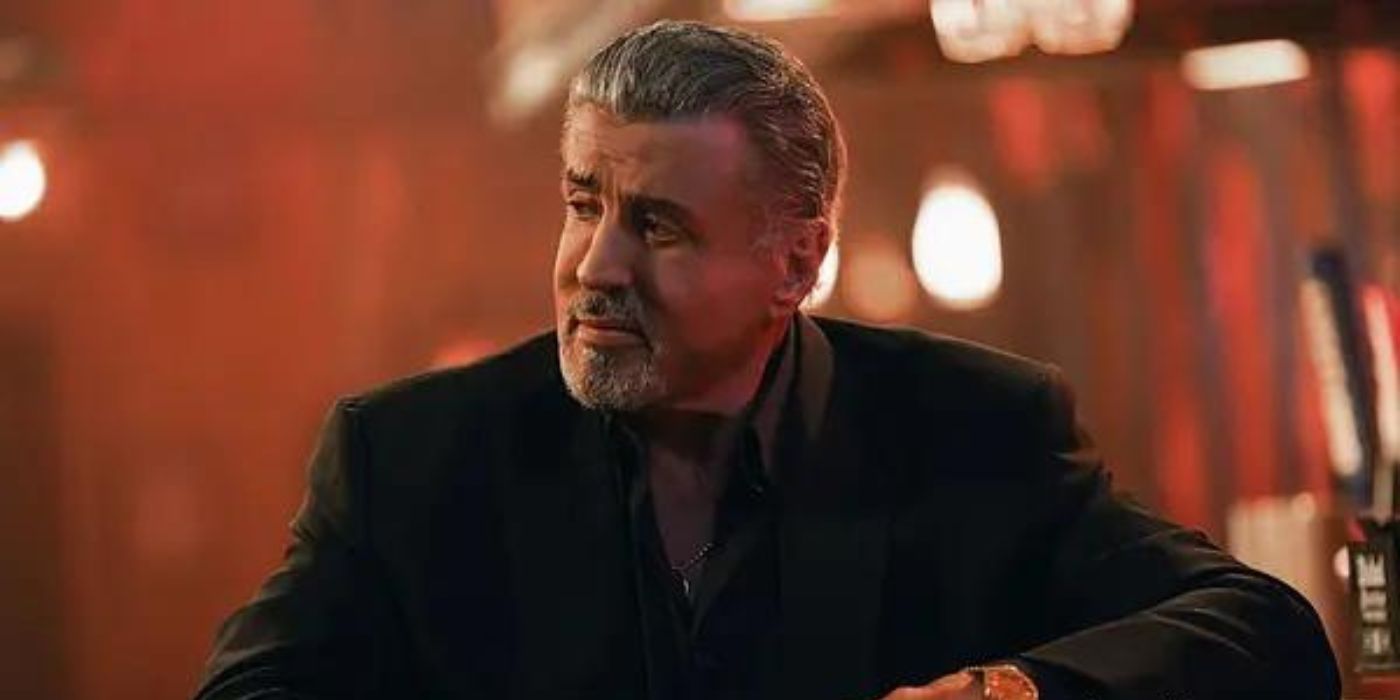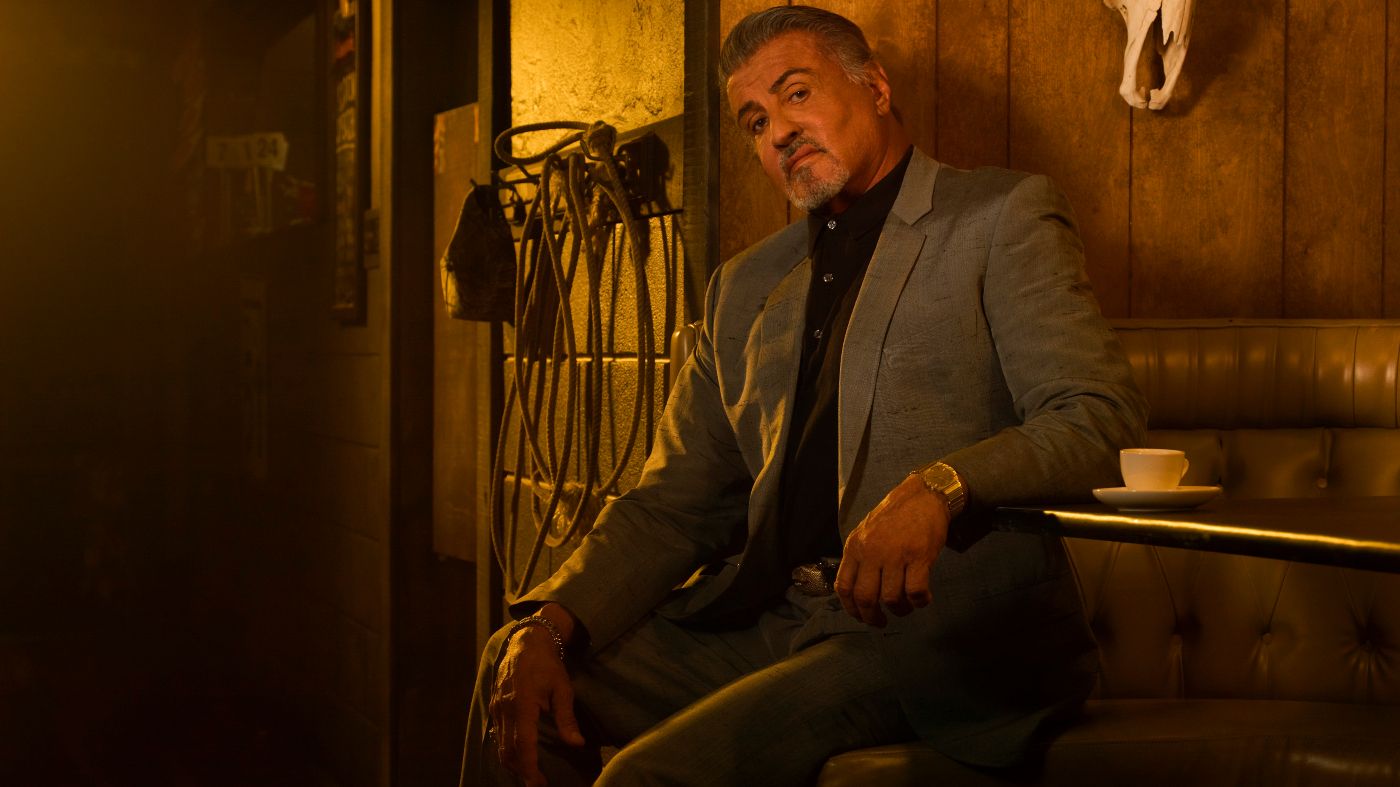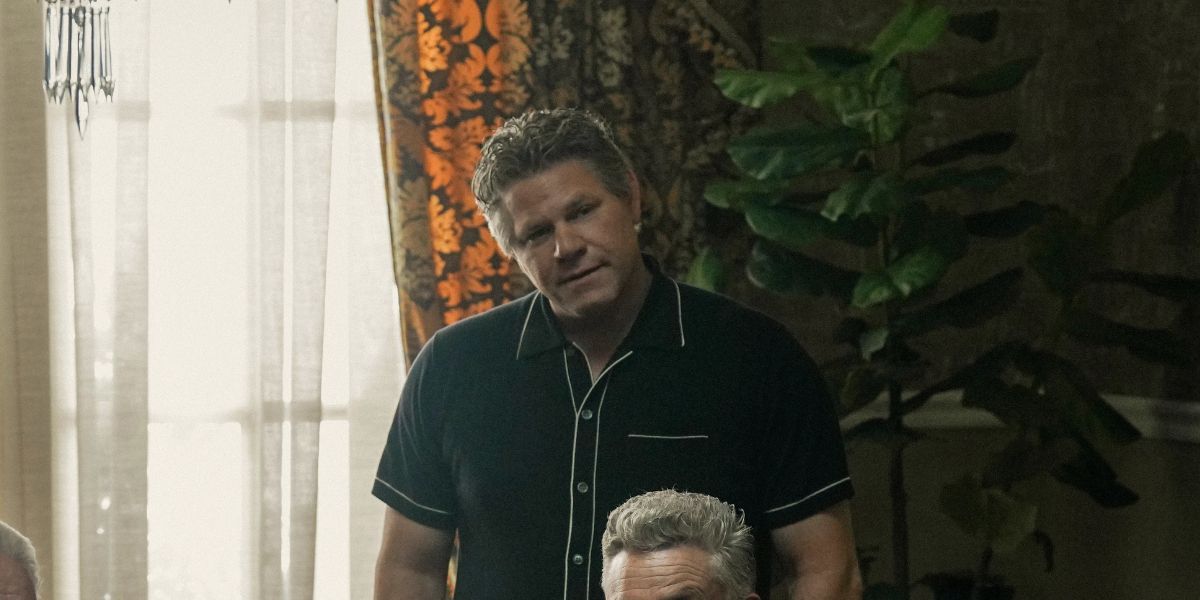Editor's Note: The following contains spoilers for Episodes 1-7 of Tulsa King.
Seven episodes into its first season, Taylor Sheridan's Tulsa King has not quite delved into its criminal roots with violence making cameo appearances throughout the series. While one would assume that violence would be the central element of a story revolving around a Mafia Capo, Tulsa King chooses to focus on the element of family in its story. And rightfully so. Tulsa King really achieves its depth in these moments when making peace with family becomes tougher than making amends with old enemies. Beyond the obvious struggle for power and money, the family drama drives the story and the characters forward in Tulsa King.
When Dwight Manfredi (Sylvester Stallone) is not busy expanding his empire in Tulsa as if it was a walk in a park, the struggles of a man attempting to correct the errors of his past come up. Even Manfredi's right-hand Tyson doesn't seem to have the smoothest relationship with his father. Episode 6, "Stable," shows that the new mafia boss Charles "Chickie" Invernizzi (Domenick Lombardozzi) is finding it hard to yield power with his ailing father, Don Invernizzi, still keeping a tight check on the rising boss' moves. A father returning to find a place within his family and a son wanting the respect he deserves from his father serve as reminders of family dynamics witnessed and explored before on TV. Yet Tulsa King finds the sweet spot in the moments it decides to embrace the problems of the familial kind.
Focus On Family Elevates the Stakes In 'Tulsa King'
Quite early in the season, it becomes clear that Manfredi did not have the best relationship with his daughter, Tina (Tatiana Lia Zappardino), who felt abandoned by her father when he decided to go to jail for a crime he didn't commit. After a long time behind bars, Manfredi obviously wanted to rekindle the relationship with his daughter. He even agrees to get a credit card, just so he can get his daughter's contact number. However, as opposed to the warmth of a long reunion, a cold welcome awaits Manfredi. A few moments later, the hard-headed Mafia Capo is seen, with teary eyes, admitting to the crime of quitting on his own daughter.
In the final moments of Episode 2, Tulsa King allows its protagonist to develop beyond the hunk who gets things done his way whenever he wants. Manfredi emerges as a father figure who can get any criminal to kneel but can't talk to his own daughter, even if he wishes to. A domineering criminal and a protective father make for a tragic protagonist anyway. Through Tina, Tulsa King assigns a weakness to its otherwise invincible protagonist. It becomes evident that while the journey to make a criminal empire would be the one where things would eventually lead, the notion of the family will remain intrinsic to that eventual journey. The family drama adds balance to what would be an otherwise interesting but eventually bland crime story if not for the emotional stakes involved.
In Episode 6, the family drama again comes into the picture in a new form as Manfredi finds out that his brother is breathing his last. Not in a position to make it to the hospital on time, Manfredi bids a final and emotional farewell to his brother. Later, he insists on speaking a few words at his brother's funeral service — a request that is not fulfilled. Yet, he is seen passing the message to his brother in his own way as an apology for all the times he was not there for him.
Even without adding a lot of context, Tulsa King emphasizes that his daughter was not the only one who was wronged by Manfredi in his pursuits. The price that Manfredi had to pay was more than was previously assumed. Importantly, the funeral becomes the opportunity for Manfredi to bridge the gap between him and his daughter. Later in the episode, when Manfredi kills his daughter's rapist, the family again takes center stage, as it's the love for his family that makes Manfredi go against even his allies.
Tina's Not the Only One With Daddy Problems
While Manfredi attempts to rebuild his family from Tulsa, another familial struggle develops in New York with Chickie struggling to establish his place as the up-and-coming boss of the family. Although the old don wants to retire, he fails to give Chickie the recognition he needs from him to command respect from others. In the turmoil growing within Chickie amidst the tumultuous transfer of power, his character evolves from a regular brat to a character who has his own story to tell. With the first hint of trouble within the family, Chickie comes out as a character with a lot more to offer.
In Episode 7, after praying at the church and begging for forgiveness in advance for the sin he is about to commit, Chickie gives the first insight into his past. It's revealed that, much like Manfredi, Chickie had different plans for his life; he wanted to be a soldier and make something of himself. Unfortunately, he became the victim of his own father who decided to sell his son's soul to keep his criminal empire standing. Just a few moments later, when Chickie kills his father by drowning him in the bath tub, the familial tension and turmoil again come front and center.
It's established that in Tulsa King, it's just not the lead of the story who has a ruptured relationship with his family. In this instance, the family drama allows Chickie to flourish as a complex character who could pose a threat to Manfredi's dominance. In tune with each other, both Manfredi and Chickie find their true purpose through their interactions with their families. On one end, Manfredi finds the solution through love and forgiveness. On the other, Chickie presents an opposing case by offering judgment through hatred and vengeance.
In Tulsa King, parallel to Manfredi's rise in the small criminal world of Tulsa lies his journey to fulfill his commitments as a family man. In many instances throughout the episodes, Tulsa King rises beyond being a light-hearted crime drama that's focused on only the criminal pursuits of its characters. Instead, it devotes the time required to deliver the emotional impact birthed by the ensuing familial struggle the characters find themselves in. The family drama in Tulsa King helps ward off the monotony of a one-dimensional crime drama story that depends on usual TV tropes to keep the viewers hooked. The family drama adds the much-needed soul to Tulsa King's story.
In many ways, while Tulsa King doesn't always treat itself as seriously as it should for a crime drama, it makes sure it takes the need for an emotionally-driven story seriously by giving importance to the drama resulting from the relationships of the characters with their families. In the moments when Tulsa King breaks the pace and decides to slow down to allow the viewers to face the heat of the family drama it has to offer, Tulsa King becomes a compelling offering despite its obvious formulaic methodologies and treatment.





